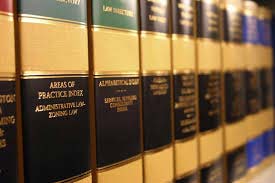The 5th U.S. Circuit Court of Appeals in New Orleans has ruled that federal law that authorizes sanctions for multiplying legal proceedings “unreasonably and vexatiously” applies to lawyers but not their law firms. This decision has reversed an award of nearly $50,000 in attorney fees to a Texas school district defending a voting rights lawsuit. The appeals court cited the plain text of the law, Section 1927 of Title 28, which states that the sanction can be assessed against “any attorney or other person admitted to conduct cases in any court of the United States or any territory thereof.” The 5th Circuit Court of Appeals ruled that courts do not admit law firms to conduct cases but individual attorneys.
The plaintiff, Frank Vaughan, was represented by the Brewer Storefront firm, the legal community service affiliate of Brewer, Attorneys & Counselors. Vaughan had sued the Lewisville Independent School District in Texas under Section 2 of the Voting Rights Act, which prohibits voting practices or procedures that discriminate based on race, color, or language. The suit had alleged that the district’s at-large election system diluted minority votes.
U.S. District Judge Sean D. Jordan of the Eastern District of Texas ruled that the plaintiff was not standing because he was white, and the suit was frivolous. In a Dec. 28, 2021 opinion, Jordan found that the plaintiff, his attorneys, and their firm were jointly and severally liable for nearly $50,000 in fees under Section 1927 and a separate fee-shifting provision for parties in the Voting Rights Act.
Jordan had reasoned that the lawyers for the plaintiff had “unreasonably and vexatiously” multiplied the proceedings by filing the suit and by pursuing irrelevant lines of questioning during depositions. The plaintiff had argued that he had standing because he resided in a district affected by vote dilution.
Put your best foot forward and sign up for LawCrossing now.
On appeal, the 5th Circuit said Vaughan’s argument was not frivolous because it sought to extend existing law. As a result, the appeals court vacated the sanction of nearly $50,000.
Although the plaintiff’s lawyers could not be sanctioned under Section 1927 for filing the suit, they could be sanctioned for their deposition conduct, the 5th Circuit said. “The attorneys questioned school board members on a range of topics that bear little relevance to a voting rights lawsuit,” the appeals court said. Those topics included “a separate Title IX suit against the school district, claims of sexual harassment at a school, state standardized testing, mental health accommodations for students during standardized testing, and board members’ individual views on policy topics such as allowing teachers to carry guns on campus.”
On remand, the 5th Circuit said, the district court should determine what, if any, costs and fees were incurred by the school district because the plaintiff’s attorneys pursued unrelated deposition topics.
Brewer’s name partner William Brewer III has previously defended the National Rifle Association. In a statement, he told Reuters that the decision “confirms that any sanctions previously awarded were unwarranted.” In the press release, Brewer said the firm “achieved a primary goal in this case: to unsettle the view on standing adopted by the trial court, which denied a citizen the right to pursue a Voting Rights Act case.”
“The 5th Circuit wisely left the door open for future plaintiffs—of any ethnicity—to carry on this type of pursuit,” Brewer said in the press release. “We believe voting systems work best when they are more inclusive, giving everyone a voice in the electoral process.”
In conclusion, the 5th Circuit Court of Appeals’ ruling that federal law authorizing sanctions for multiplying legal proceedings “unreasonably and vexatiously” applies to lawyers but not their law firms has reversed an award of nearly $50,000 in attorney fees to a Texas school district defending a voting rights lawsuit. While the plaintiff’s lawyers could not be sanctioned for filing the suit, they could be sanctioned for their deposition conduct. The decision has also established that any attorney or other person admitted to conducting cases in any court of the United States or any territory can be assessed a sanction under Section 1927 of Title 28. Overall, the ruling is significant for clarifying the application of sanctions for multiplying legal proceedings and setting a precedent for future voting rights cases.






































